by jboullion | Mar 25, 2015 | Uncategorized
The below article by Tom Clementi appeared in the Appleton Post Crescent Wednesday March 25th. Titled “Check Walker’s Motives on Energy Choices,” it discusses differences in Governor Walker’s self-proclaimed “supportive” position on bioenergy and renewables in his presidential stump speech and actions taken in his proposed 2015-2017 state budget that eliminates state funding for important bioenergy research.
Check Walker’s Motive on Energy Choices
By Tom Clementi
If you’re like me and find the news involving Scott Walker and his ever-changing views on seemingly everything— from abortion as something between “a woman and her doctor” to “I will sign the bill” prohibiting abortion after 20 weeks, from saying that immigration amnesty “makes sense” to “I don’t believe in amnesty,” and “I have no interest in a right-to-work law” to signing the law at the first possible moment — just dizzying, well, welcome to the club.
I’m really not sure how he does it, or frankly, how the people of Wisconsin can keep up with it or put up with it. Frankly, it makes me wonder if Walker is ever sure about anything or if he just changes his opinions as the political situations and locations warrant.
Recently, Walker traveled to Iowa and proclaimed his support for ethanol and bio-renewable fuels, which is about what you’d expect from a candidate stumping in the Corn Belt. Never mind that as far back as 2006, in his first run for governor, he was critical of the idea: “Mandates hurt Wisconsin’s working families. And whether they are from Washington or Madison, we as fiscal conservatives should oppose them.”
Yes, we know politicians change their minds.
But deep in his 2015-2017 budget, Walker calls for elimination of the University of Wisconsin’s renewable energy program. Keep in mind that this is separate from his proposal to cut the University of Wisconsin’s budget by $300 million. The research center develops ways to create energy out of wood, grasses and corn — all bio-renewable fuels. It partners with private companies to help them become more energy-efficient. An example is Johnson Controls, Wisconsin’s largest company, which opened a research facility on the Madison campus last year.
The energy research program started eight years ago with a $125 million grant from the George W. Bush administration. It continues to receive $25 million per year from the Department of Energy. The state’s financial contributions helped fund the actual construction of the building, which opened just two years ago. UW’s renewable energy program has been an unqualified success. It has filed 100 patent applications in the past eight years; that’s an average of about one per month.
Start-up companies have been enthusiastic about using UW’s technology, including GluCan Biorenewables, a Missouri company planning to build a plant in northern Wisconsin to develop chemicals used in the papermaking industry. That’d mean a more efficient papermaking process, and jobs to go with it. Another research center innovation is a process that breaks down plant sugars and coverts them to energy — energy from biological, not fossil fuels.
Walker, however, now wants to pull the plug on the state’s $4 million annual funding, which would mean the elimination of 35 positions and cripple the program. But why? To just save $4 million? It may be more important to recall exactly who has funded the Walker train from the start.
The amount of outside-the-state money that has flowed to the governor’s campaign coffers has been significant. Those donors are decidedly in the fossil-fuel business and their profits are threatened when they come up against renewable energy sources.
It’s fair to ask why there has been no expansion of wind power programs in Wisconsin in the last four years. Or why it was so easy for a Florida company to get approval to build the country’s largest open-pit mine in northern Wisconsin (though they’ve now quietly backed out of the mine’s construction). Or why, as soon as he walked into the governor’s office, Walker canceled an $800 million contract from the federal government to repair and expand rail service in Wisconsin.
Meanwhile, the amount of road construction in the state continues to increase and Walker wants to borrow the money to fund it. Who benefits from these type of policies? Whose profits increase? Those whose companies deal in gas, oil, coal and asphalt are those whose organizations have contributed heavily to Walker’s political campaigns.
I don’t know how the governor plans to reconcile his differing views and statements. I don’t know how he can attempt to dismantle the most successful bio-renewable research program in his own state, and then go next door to proclaim his support for an industry which uses the very research he wants to shut down.
It’ll be interesting to see how the governor defends his constantly fluctuating views on so many issues. We’d probably be wise to check Walker’s travel map before making any predictions on what he might say next.
— Tom Clementi is an Appleton resident. He can be reached at tjcwriter@gmail.com.
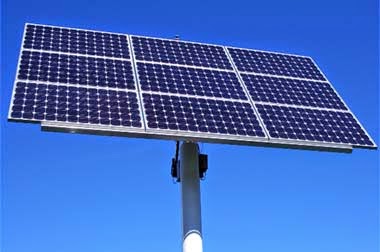
by jboullion | Mar 19, 2015 | Uncategorized
Recently, two anti-solar opinion pieces appeared in the publication Utility Dive. The first, by Dr H. Edwin Overcast, favors increased fixed rates for solar customers as a solution to the solar “problem.” The second, by Dr. Ashly Brown, claims solar customers do not deserve to be reimbursed at full retail value for the electricity they sell back to the grid. RENEW’s Executive Director Tyler Huebner and Senior Attorney at the Environmental Law and Policy Center Brad Klein teamed up to write a response to Dr. Overcast and Dr. Brown on why “data is the key to determining solar’s true value.”
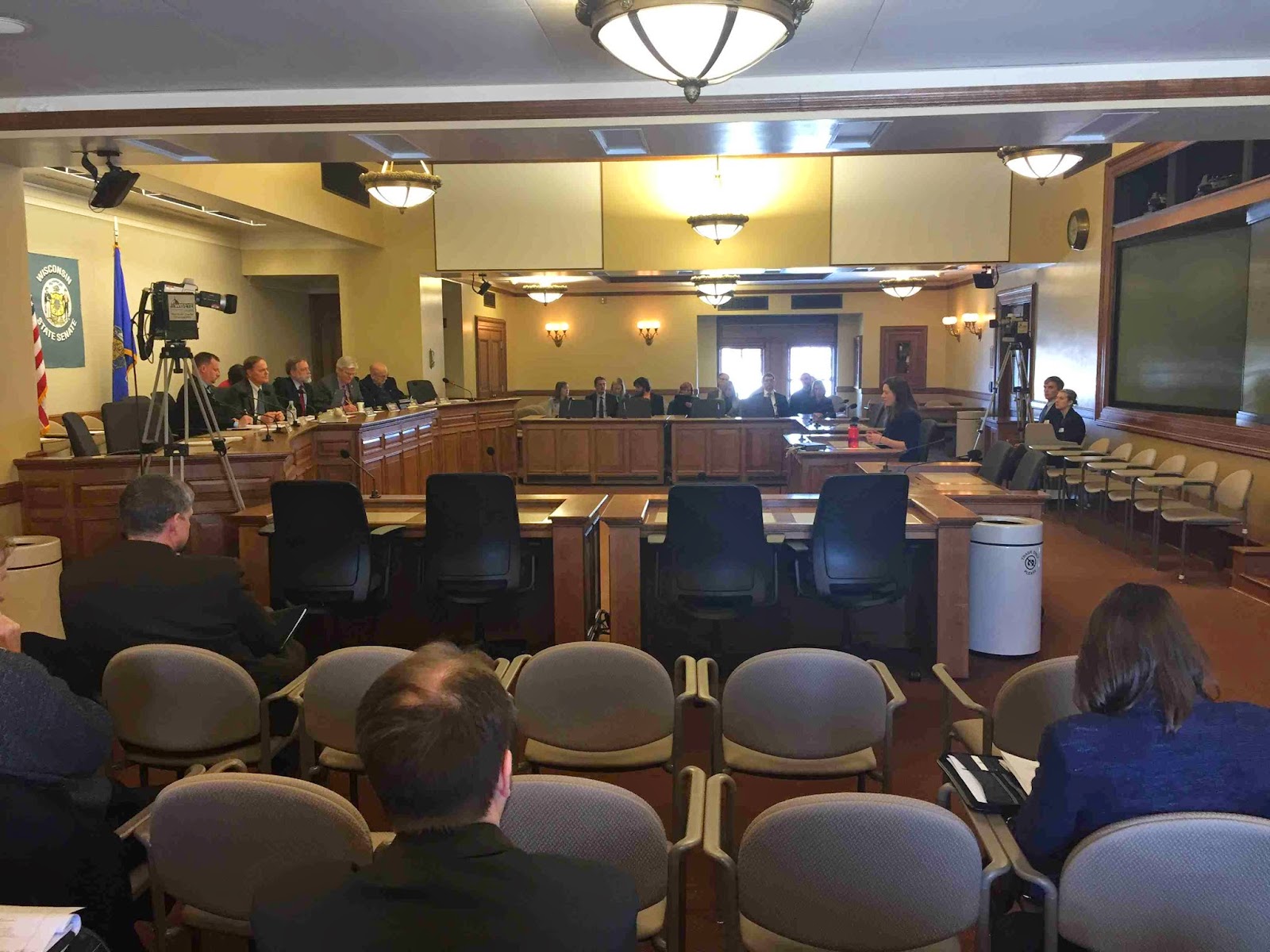
by jboullion | Feb 20, 2015 | Uncategorized
Yesterday, our executive director, Tyler Huebner, testified before the Wisconsin Senate’s Natural Resources and Energy Committee in an informational hearing on the Focus on Energy program which delivers energy efficiency and renewable energy rebates and information to individuals, businesses, farmers, and local governments throughout Wisconsin. The Committee was interested in learning about the progress and current operation of the program.
 |
Melissa VanOrnum of DVO, Inc, an anaerobic digester
company based in Chilton, testifying before the committee. |
In addition to our own testimony, RENEW invited business members DVO, Inc of Chilton, Eland Electric of Green Bay, and BIOFerm of Madison to testify about the benefits of Focus on Energy to their businesses and to the customers they serve.
RENEW and our members testified that the Focus program for renewable energy is a key market driver to get customers to invest in renewable energy projects. We discussed the job creation elements of the program, how the Focus program leverages 5-10 times the amount of private funds to get projects done, and the businesses discussed powerful stories from their customers’ projects and their own business growth.
The hearing went very well. Testimony also came from representatives of the Focus on Energy program, Cadmus, who conducts the evaluations of the program, Customers First! Coalition, Wisconsin Utilities Association, Clean Wisconsin, Johnson Controls, CREE Lighting, and others.
RENEW’s testimony is printed below.
Testimony of RENEW Wisconsin on the Focus on Energy Program
Before the Senate Natural Resources & Energy Committee
My name is Tyler Huebner, and I am the executive director of RENEW Wisconsin, a nonprofit organization which promotes renewable energy and represents Members including individuals and over 50 businesses in Wisconsin’s renewable energy industry.
Thank you for the opportunity to speak today.
Renewable energy technologies have been offered in Focus on Energy since 2002.
Eligible renewable energy technologies include:
• Biogas such as anaerobic digesters for dairy farms
• Biomass
• Ground source or geothermal heat pumps
• Small wind energy systems
• Solar photovoltaics
• Solar water heating
Installing these types of energy systems enable businesses, farmers, local governments, schools, and individuals to become more self-reliant for the energy needs, become more energy independent, save money, and plan their energy costs for the future.
Funding for renewable energy rebates has averaged $5 to $6 million per year to customers, over the years from 2007 to 2014.
The Focus on Energy rebates are an important stimulus to get customers interested in the program, and get them to act and invest their own funds into projects.
The renewable energy program leverages significant levels of private funds. In 2012, for example, $5 million in incentives from Focus on Energy leveraged over $40 million in additional funds.
Overall, the Focus program, per a 2012 evaluation of economic impacts, supports over 1,400 jobs per year in Wisconsin, with more jobs created in future years too due to the savings. The renewable energy portion actually accounted for more jobs per dollar than the energy efficiency funds. Focus on Energy, because it is funding just a portion of overall project costs, provides a large jobs multiplier for the amount of funding spent.
The rebate structure of the Focus program has led to its success in the marketplace over the past 12 years. Using incentives has proven most successful way to obtain the participation in the program. The renewables rebates were renewed for 2015 and 2016, with a decision from the Public Service Commission in 2016 which will determine if rebates will be available in 2017 and 2018.
Going forward, we look forward to also making the new $10 million renewable energy revolving loan program a success, too. This loan program is modeled after a successful program run in Iowa. From our early conversations with our Member businesses, it may work much better for some technologies like solar, than others, particularly digesters, given their larger investment needs. If the loan program is successful, it will help banks get more comfortable with lending for renewable energy technologies through the education and technical assistance the Focus on Energy team will provide.
The new $6.4 million dairy digester program is also promising, as it will explore how to make the digester technology work on smaller farms. With approximately 12,000 small to medium sized dairy farms, identifying workable technologies and projects may be able to open up this new market for digesters.
The renewable energy program has gotten consistently more cost-effective over the years. The most recent evaluations show renewable energy provides a 2-to-1 overall effectiveness when economic benefits including job creation are included, and is now just shy of 1.0 on energy-only cost-effectiveness. Solar PV, for the first time ever, had a cost-effectiveness above 1.0 in 2013.
In closing, the renewable energy program is program that creates jobs, that drives investment into Wisconsin’s economy, and that enables businesses, farms, local governments, and individuals to become more energy independent and more in control of their future energy costs.
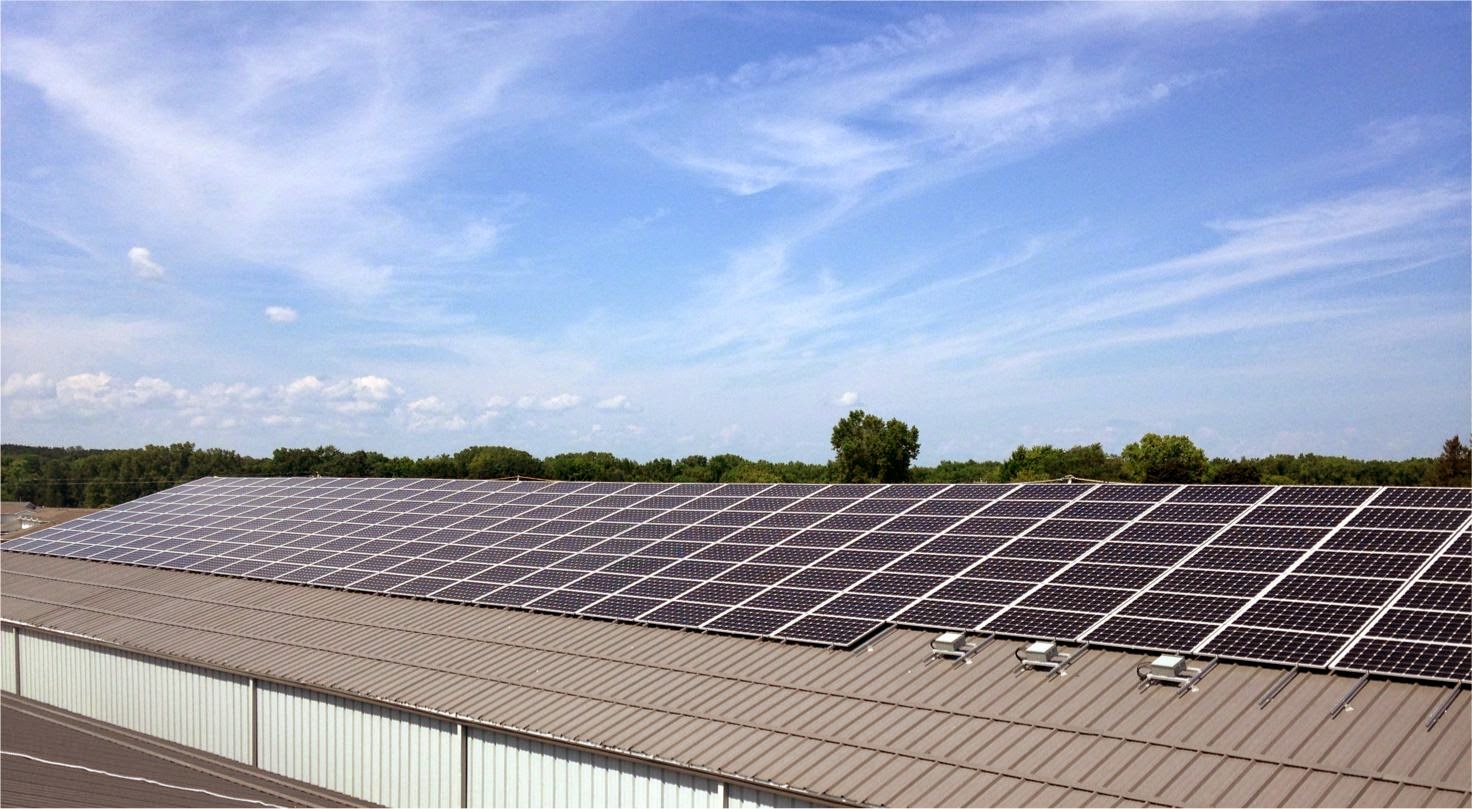
by jboullion | Feb 9, 2015 | Uncategorized
Circuit Court Judge sends 2013 decision from Wisconsin Public Service rate case back to the Public Service Commission
For the second time in 12 months, a Dane County Circuit Court judge has overturned Public Service Commission (PSC) rulings that restrict net metering, a key policy that drives customer investments in renewable energy. The Judge’s order remands two decisions back to the PSC for “further fact-finding and to establish a sufficient record,” but does not immediately change the net metering program.
 |
A 100 kilowatt Solar electric system on Griffin Industries in Green Bay
(Photo provided by Eland Electric) |
The lawsuit, advanced by RENEW Wisconsin, a nonprofit renewable energy advocacy organization based in Madison, challenged two PSC approvals rendered in Wisconsin Public Service Corporation’s 2013 rate case. These decisions paved the way for Wisconsin Public Service (WPS) to reduce payments for clean electricity generated by their customers.
The first decision allowed WPS to greatly reduce the size of the renewable energy system qualifying for net metering, from 100 kilowatts to 20 kilowatts. This change restricts many businesses, schools, and other medium-sized electricity users from participating in the program.
The second decision granted the Green Bay-based utility’s proposal keep their netting period at 30 days, which forces customer-generators to reduce the size of their solar systems to avoid being paid 3 cents per kilowatt-hour for the electricity they export to the grid. As of 2013, WPS’ peer utilities in Wisconsin used annual netting, allowing customers to bank and utilize credits throughout a 12-month period.
In its brief, RENEW argued that WPS failed to offer any substantial evidence in support of its requests to alter its net metering structure for the purpose of reducing compensation to customers with solar and other renewable energy systems. After reviewing the rate case record, Judge Rhonda Lanford agreed with RENEW’s arguments, noting that the “record produced is devoid of substantial evidence” and insufficient to support an agency finding of fact.
“It is important that we promote and defend Wisconsin renewable energy in all decision-making venues,” said Tyler Huebner, RENEW Wisconsin’s Executive Director. “These are complex issues at a time of great change in the electricity industry. Commission decisions need to be based on real, rigorous, and impartial evidence and analysis.”
In June 2014, the same judge struck down a 2012 PSC decision allowing Milwaukee-based We Energies to limit the availability of its net metering service to solar customers, citing a lack of evidence in the hearing record.
“Solar energy has become an affordable alternative for customers who desire to manage their electric bills effectively and supply themselves with clean energy,” added Huebner. “Solar system owners provide many benefits to other utility customers, such as producing locally generated electricity at the highest-use times of the day. The Commission needs to account for these benefits that solar energy provides in utility rate cases, so that customer-owned renewable energy systems are compensated at fair value.”
RENEW Wisconsin and The Alliance for Solar Choice, a national solar advocacy group, recently filed suit in the same Circuit Court against the PSC in the 2014 We Energies rate case. In that case, We Energies was granted approval to overhaul their net metering programs to charge an extra monthly fee to residential and small business customers that generate some or all of their own power, and switch to monthly netting. RENEW and TASC’s arguments are consistent with this case: the utility and PSC have not provided or relied upon sufficient evidence or analysis to justify the decision.
RENEW Wisconsin leads and accelerates the transformation to Wisconsin’s renewable energy future through advocacy, education, and collaboration. More information on RENEW’s web site at www.renewwisconsin.org.

by jboullion | Feb 2, 2015 | Uncategorized
On January 23rd RENEW’s Program and Policy Director Michael Vickerman gave the keynote address at the 84th annual state convention of the Wisconsin Farmers Union in Eau Claire. Michael’s talk was titled “Moving Solar Forward” and was part of a half-day of sessions on solar energy for Wisconsin farmers. His presentation can be found here.
Thanks to the Wisconsin Farmers Union for having Michael speak and for helping move solar forward in Wisconsin!
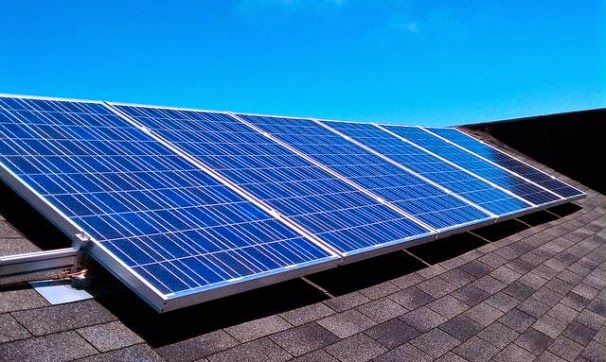
by jboullion | Jan 22, 2015 | Uncategorized
The Alliance for Solar Choice and RENEW Wisconsin ask courts to rule on the legality of controversial rate case decision
Contacts:
Amy Heart Tyler Huebner
The Alliance for Solar Choice RENEW Wisconsin
414-510-8965 (m) 608-575-2201 (m)
MADISON, WI – January 22, 2015 – The Alliance for Solar Choice (TASC) and RENEW Wisconsin today filed an appeal of the Wisconsin Public Service Commission’s December decision to impose discriminatory charges against solar customers in We Energies territory. The appeal challenges 1) the total lack of support in the public record for the charges and 2) the discrimination against solar and low usage customers.
“The Public Service Commission’s own staff expert testified that there was not enough evidence in the record to approve the discriminatory solar charges,” said Amy Heart, spokesperson for The Alliance for Solar Choice. “That will be difficult to deny in the courts.”
Over 500 Wisconsin residents attended a public hearing in October to oppose We Energies’ proposal, and their outcry garnered national media attention.
“The Public Service Commission has essentially permitted a private company, We Energies, to institute a new tax on some of its customers,” said Tyler Huebner, Executive Director of RENEW Wisconsin. “The record doesn’t support this decision, and we look forward to an impartial review of the facts behind this case.”
“We Energies commissioned a confidential internal study of solar in Wisconsin and found that solar customers provide a net financial benefit to all ratepayers,” said Heart. “That will be difficult for the Commission to deny in the courts.”
About The Alliance for Solar Choice: The Alliance for Solar Choice (TASC) leads the rooftop solar advocacy across the country. Founded by the largest rooftop companies in the nation, TASC represents the vast majority of the market. Its members include: Demeter Power, Silevo, SolarCity, Solar Universe, Sunrun, Verengo, ZEP.
About RENEW Wisconsin: RENEW Wisconsin leads and accelerates the transformation to Wisconsin’s renewable energy future through advocacy, education, and collaboration. RENEW represents over 50 companies in the Wisconsin renewable energy industry.
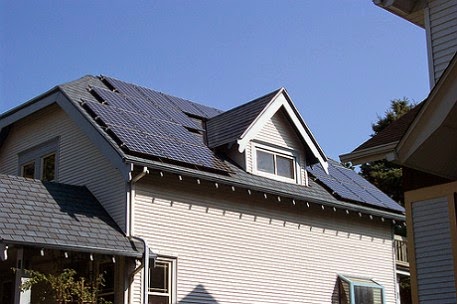
by jboullion | Jan 16, 2015 | Net Metering, Uncategorized
In the last three years, several Wisconsin utilities have proposed changes to their net metering service in an effort to reduce the value proposition of solar generation for host customers. One way to accomplish this objective is to dramatically shrink the duration of the netting period. In Wisconsin several utilities have sought permission to reconcile output and consumption on a monthly basis. Twice in the last two years, a majority on Wisconsin’s Pubic Service Commission have signed off on utility requests to limit the netting period to the monthly billing period, We Energies being the latest to receive approval to impose monthly true-ups.
As the article from Midwest Energy News’ Kari Lydersen below demonstrates, the greater the output from a PV array relative to the host customer’s consumption, the higher the likelihood that a portion of that system’s production will be compensated at a substantially reduced rate. Depending on the utility, that lower rate can be 75% less than the retail energy rate offset. This policy is particularly damaging to residential and small business solar producers, due to strong seasonal swings in both system output and consumption.
In Wisconsin, solar ‘new math’ could equal big impacts
Posted on 01/16/2015 by Kari Lydersen
 |
Solar panels on a home near Milwaukee.
(Photo by mjmonty via Creative Commons) |
For tourists, the “shoulder seasons” in the spring and fall are times to get cheap deals in ski resorts or beach towns that cater to summer and winter crowds.
For people with solar power on their homes, these seasons are when their solar installations are most likely to be producing more energy than the home actually needs. These “shoulder months,” as RENEW Wisconsin Policy and Program Director Michael Vickerman frames it, are at the crux of one of the ways solar power is under attack in Wisconsin.
The Wisconsin Public Service Commission recently approved three controversial rate cases proposed by We Energies, Wisconsin Public Service Corporation (WPS) and Madison Gas & Electric, which all will make it much less favorable or feasible to install solar panels on a home or small business.
We Energies, the most significant case, includes a provision that will change how the utility compensates consumers for sending energy back to the grid, by changing from annual to monthly “true-up” net metering calculations.
This may sound like an arcane modification. But Vickerman and other solar advocates say it means people will be compensated drastically less for the energy they send back to the grid during the spring and fall, and they are likely to build smaller solar installations as a result.
Unless an expected legal challenge to the Public Service Commission decision is successful, the true-up change will take effect in January 2016. WPS has done its calculations on a monthly basis since a 2013 rate case (docket number 6690-UR-122 on the commission’s website).
“It definitely is not reflective of best practices to switch from annual to monthly” true-ups, said Sara Baldwin Auck, regulatory program director of the Interstate Renewable Energy Council (IREC), which publishes an annual report called “Freeing the Grid” scoring states’ net metering policies.
“Net metering policies are a compilation of multiple pieces, they all add up to favorable [or unfavorable] conditions and terms for the customers who are seeking to invest in onsite renewable energy and take more control of their energy future and energy bills. It’s a little tough to say whether the true-up issue is the lynchpin, but I will definitely say that this issue ranks higher than others as far as contributing to the overall best practices.”
The math
Typically, at the end of the year utilities tally up how much energy a customer has used and how much they have sent back to the grid from their solar installations. Then the customers are either charged or compensated for the difference, or the energy they have “banked” may be put toward the coming year’s usage.
When someone produces more energy than they have used, there’s the question of how much to pay them for that energy sent back to the grid. This is where net metering policies defined by different state laws or determined by different utilities can vary significantly.
The customer with solar panels can be compensated at the retail rate – the cost they would have paid for electricity at that time; or the “avoided cost” rate, the amount the utility estimates it saved by not having to provide that amount of power to other consumers on the grid. The rate may also be determined through a formula based on several market factors.
Retail and avoided cost rates are significantly different. Avoided cost rates for Wisconsin utilities are 3 to 4 cents per kWh, while retail rates are around 11 to 14 cents per kWh.
When a solar installation produces less energy than a home uses during the true-up period, the way surplus energy is compensated is irrelevant, since there is none. But when someone is sending significant solar energy to the grid, different rates of compensation can add up.
That’s where the shoulder seasons become important. Most Americans use their highest amounts of electricity in the summer, with air conditioners running. Winter also usually means high electricity use, with more lights on when the sun sets early and electricity sometimes used for heating the home or heating water. In the spring and fall, by contrast, household electricity use tends to be lower. That’s when solar installations are most likely to send more electricity back to the grid than the home uses.
If net electricity consumption and generation is all tallied up at the end of a year, people essentially get to “use” their springtime solar power in the summer or winter when their demand is higher. But if the balances are tallied every month, consumers will often end up getting low avoided cost rate payments for their surplus energy during the shoulder seasons, then buying more electricity at higher retail rates in summer and winter.
We Energies spokesman Brian Manthey said, “Monthly net metering more accurately and more fairly values distributed generation by crediting on-peak use at the on-peak rates and crediting summer generation at typically higher summer-based rates.”
“To set the buyback rate at something higher than avoided cost for customer-generated energy would set an inappropriate price signal and would be unfair to customers without their own generation,” Manthey continued.
How much does it matter?
Vickerman said surplus energy payment and true-up policies are typically figured in when someone decides what size solar installation to put on their home. If they won’t be paid much for unused energy, they may choose a smaller installation…meaning less clean energy on the grid.
Vickerman made these points in testimony before the Wisconsin Public Service Commission in 2013 regarding WPS’s change to monthly true-ups. He noted that companies who advise customers on installing solar use sophisticated “solar math” to decide what size system is most financially efficient, and the true-up period is an important consideration in that equation.
Vickerman gave an example of a 4,500-4,900 kWh system in Green Bay. That would seem a good fit for a home using 5,000 kWh per year. But given typical monthly fluctuations, based on widely accepted models, he estimated that household would have to sell 561 kWh per year back to the utility at the lower avoided cost prices.
That would represent a loss of about $55 under monthly true-ups compared to annual calculations. That would increase by 10 percent the time it would take the solar system to pay for itself in energy savings. Faced with that situation, Vickerman said, a customer might choose a smaller solar array.
“You need to look at all the pieces,” of a net metering policy, said Baldwin Auck. “One element can really have a domino effect on whether that policy is ultimately effective in encouraging people to install these systems.”
The national scene
Baldwin Auck said that 22 states have “some form of annual true-up.” The “ideal scenario” for net metering, she noted, is “indefinite rollover,” where the excess energy someone has sent to the grid is perpetually credited to their account in a situation akin to a meter literally running backwards.
In California, state law says that a customer cannot be required to true-up more frequently than once a year. However some utilities offer customers the option to true-up monthly, saying it helps them avoid “surprise” charges once an annual bill is due.
PG&E in California, for example, calculates net metering on an annual basis, and at that time pays customers an annual rate of 4 cents per kWh for the surplus energy. Southern California Edison allows customers to receive a check for surplus energy at the end of the year or to roll over their credit into the next year’s billing cycle.
California received an A grade for net metering policies in the 2015 Freeing the Grid report. California also has more friendly solar policies on other fronts, for example only solar installations of 20 kW or less typically qualify for net metering in Wisconsin, whereas California utilities accept installations up to 1 MW.
Illinois, Michigan, Iowa, Indiana and Minnesota all got B’s for net metering policies in Freeing the Grid, and Ohio got an A.
“The monthly true-up is much less common, and there is a strong correlation between states that have received an A or B grade on the scorecard, and annual true-ups,” Baldwin Auck said.
The value of electricity
Clean energy groups plan to challenge various aspects of the We Energies rate case. First they must file an administrative challenge with the Public Service Commission. If the commission denies that
appeal, they can file a lawsuit in state circuit court.
“We will ask the commission to reconsider, though we have a pretty good idea what the commissioner will say,” said Vickerman. “It’s a process we have to go through.”
The commission’s approval of the MG&E rate case is also likely to be challenged. However the MG&E case does not change the true-up period.
Another utility, Alliant Energy/Wisconsin Power and Light does not have a full rate case pending, but it recently went through a smaller proceeding before the Public Service Commission. Wisconsin Power and Light already trued-up customers with solar monthly. But they paid the retail rate rather than the avoided cost rate, so the monthly calculations raised no concerns. A change which took effect January 1 (docket number 6680-FR-107)) means that now Wisconsin Power and Light pays separate retail and avoided-cost rates.
“They were already doing the net calculations every month, but it didn’t matter when every kilowatt hour got the same credit,” said Vickerman. “Now they’re switching from a one-tier to a two-tier structure, and suddenly it matters.”
Renew Wisconsin challenged the Wisconsin PSC change, and ultimately came to a settlement that allows more customers to continue for a longer time grandfathered in under the old system. The settlement means the utility increased from five to 10 years the time grandfathered-in solar operates under the old system. And the settlement meant solar installed up until December 31, 2014 is grandfathered in, as opposed to the utility’s proposal of July 2014.
“We’re not happy with that, but on the other hand it could be much worse,” said Vickerman of the settlement.
Baldwin Auck said that in the debates over true-up policies and surplus energy rates, she hopes people don’t lose sight of the forest for the trees.
With a solar installation “You’re reducing onsite consumption, and on top of that giving energy back to the grid,” she said. “The credit a customer receives for that energy should be reflective of the full value of that electricity.”
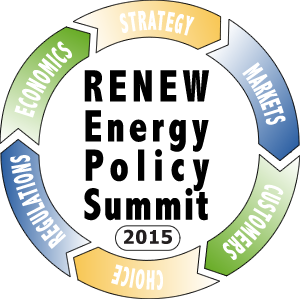
by jboullion | Jan 6, 2015 | Uncategorized

(Madison) – At its fourth annual Energy Policy Summit, RENEW Wisconsin will present awards to businesses and individuals whose achievements and vision helped lift Wisconsin’s renewable energy marketplace to new heights in 2014.
Titled “Unlocking the Clean Energy Transition,” RENEW’s summit is set for January 9, 2015, and will take place at UW-Madison’s Union South.
“The people and companies we will recognize this Friday are making a lasting impression on Wisconsin’s renewable energy landscape,” said RENEW Wisconsin Executive Director Tyler Huebner. “As Wisconsin’s preeminent clean energy organization, RENEW benefits greatly from their pioneering innovations and hard work, which help prepare the ground for broader policy advances.”
“We at RENEW are honored to have the opportunity to work closely with these award winners and take inspiration from their ongoing commitment to advancing clean energy here,” Huebner said.
A list of award categories and recipients appears below.
Energy Independent Enterprise of the Year – Gundersen Health System, La Crosse – For becoming the first large health care network in the nation to offset 100% of its electricity usage with its own sources of clean energy.
Renewable Energy Business of the Year – Eland Electric Corporation, Green Bay – For planning and building in 2014 nearly one megawatt of rooftop solar generation in the Fox Valley/Northeast Wisconsin region.
Renewable Energy Champion of the Year – Matt Neumann, SunVest Solar, Pewaukee – For outstanding public advocacy on behalf of regulatory policies and reforms that would allow renewable energy contractors to provide mainstream financing options for their customers.
Renewable Energy Grassroots Activists of the Year – Steve and Ellen Terwilliger, Eau Claire – For organizing and co-hosting, along with Chippewa Valley Technical College, the Solar Power Wisconsin Affordable Energy Conference, a new outreach event that attracted nearly 200 people to Eau Claire in November 2014 to learn more about solar energy.
For more information on the 2015 program agenda, speakers, and registration, please visit: http://www.renewwisconsin.org/2015_Summit/
-END-
RENEW Wisconsin leads and accelerates the transformation to Wisconsin’s renewable energy future through advocacy, education, and collaboration. More information on RENEW’s Web site at www.renewwisconsin.org.
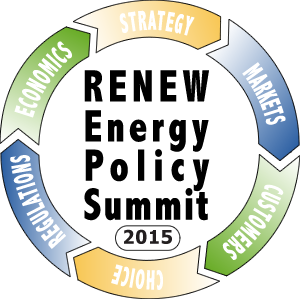
by jboullion | Jan 5, 2015 | Uncategorized
 For immediate release
For immediate release
January 5, 2015
More information
Tyler Huebner, Executive Director
608.255.4044
tyler.huebner@renewwisconsin.org
Renewable Projects Selected for RENEW’s 2014 Honor Roll
Newest Wisconsin Generators Powered by Water, Cow Manure, and the Sun
(Madison) – At its fourth annual Energy Policy Summit, RENEW Wisconsin will recognize the largest, and the most innovative, renewable generation projects built in Wisconsin in 2014. Titled “Unlocking the Clean Energy Transition,” RENEW’s summit will take place January 9, 2015, at UW-Madison’s Union South.
The 16 clean energy projects inducted into RENEW’s Honor Roll added 5.92 megawatts (MW) of new generating capacity in Wisconsin. Of that total, the two hydropower projects–Badger Hydro and Angelo Dam–account for slightly more than 3 MW. In the biogas category, Gundersen Health System recently energized its 600-kilowatt Sunny Side Digester installation northeast of Sun Prairie.
The other 13 generators, accounting for 2.27 MW, are solar powered. Many of the solar projects fit the definition of Community Solar, either involving a single array sponsored by customer subscriptions (a/k/a solar gardens) or a single contractor installing solar electric systems in a particular neighborhood.
Combined, the projects will provide enough electricity to power the equivalent usage of about 2,600 Wisconsin homes.
Perhaps representative of a shift in attitudes on distributed renewable generation, two of the projects to be highlighted are owned by electric providers. One project, Kaukauna Utilities’ Badger Hydro, involved reconstructing and upgrading an existing unit, resulting in a generating capacity increase of nearly 3 MW. Barron Electric Cooperative owns its 100 kW solar garden outright.
In addition, electric providers sponsored the construction of four solar gardens in Wisconsin, three of which—Vernon, St. Croix, and Barron–are supported by self-selecting customers. In exchange for their up-front contributions to the array, these customers receive a credit on their monthly bills. Over the course of their subscription period, typically 15 years long, these customers should receive a financial return in the neighborhood of 4%.
In addition to the utility-sponsored solar gardens, this year’s Honor Roll includes two neighborhood-based Community Solar initiatives organized by a single installer. In Black River Falls, Ho-Chunk Nation supplied 45 solar electric systems installed by PV Systems, Inc., and serving residential households, while in the Bay View neighborhood in Milwaukee, Arch Electric energized 38 individually owned solar electric systems there.
Also to be honored are eight solar installations serving manufacturers, faith communities, a brewery, an airport maintenance facility and a public museum.
“The Energy Policy Summit is a fitting venue to honor the people and organizations that embraced the vision of energy self-sufficiency and job creation, and brought these ideas to fruition,” said RENEW Wisconsin’s Executive Director Tyler Huebner.
“Their solar, hydro, and bioenergy installations created jobs, reduced the flow of imported fossil fuels into Wisconsin, and demonstrated responsible environmental stewardship. They truly deserve the recognition, as well as everyone’s appreciation,” Huebner said.
A list of the projects that earned a spot on RENEW’s 2014 Honor Roll appears on page 3.
For more information on the 2015 program agenda, speakers, and registration, please visit:
http://www.renewwisconsin.org/2015_Summit/
-END-
RENEW Wisconsin leads and accelerates the transformation to Wisconsin’s renewable energy future through advocacy, education, and collaboration. More information on RENEW’s Web site at www.renewwisconsin.org.
Distributed
Renewable Generation in Wisconsin
RENEW Wisconsin – 2014
Honor Roll
|
Biogas
|
|
Installation
|
Owner
|
County
of Location
|
Capacity
(in kW)
|
Installer/
Contractor
|
|
Sunny
Side Biodigester
|
Gundersen
Health Systems
|
Dane
|
600
|
U.S.
Biogas
|
|
Hydro
|
|
Badger
|
Kaukauna
Utilities
|
Outagamie
|
7,000
(2,800 new)
|
Boldt
Construction
|
|
Angelo
Dam
|
Western
Technical College
|
Monroe
|
205
|
Lunda
Construction
|
|
Solar
– Utility
|
|
Dairyland
Power Cooperative
|
Clean
Energy Collective
|
Vernon
|
517
|
Vernon
Electric
|
|
Solar
– Community
|
|
Vernon
Electric Cooperative
|
Clean
Energy Collective
|
Vernon
|
305
|
Vernon
Electric
|
|
Ho-Chunk
Nation (Black River Falls)
|
Ho-Chunk
Nation
|
Jackson
|
158
(45 systems)
|
PV
Systems, Inc.
|
|
Bay
View Neighborhood (MKE Shines)
|
Bay
View homeowners
|
Milwaukee
|
136
(38 systems)
|
Arch
Electric
|
|
St.
Croix Electric Cooperative
|
NRCO
|
St.
Croix
|
103
|
|
|
Barron
Electric Cooperative
|
Barron
Electric
|
Barron
|
100
|
Carr
Creek
|
|
Solar
– Customer-Owned
|
|
AMI
|
Brown
|
175
|
Eland
Electric
|
|
Holy
Wisdom Monastery
Benedictine
Women of Madison
|
Dane
|
145
(125 new)
|
H&H
Solar
|
|
Griffin
Industries
|
Brown
|
113
|
Eland
Electric
|
|
Astro
Industries
|
Brown
|
113
|
Eland
Electric
|
|
Sisters
of St. Francis of the Holy Cross
|
Brown
|
112
|
Eland
Electric
|
|
Dane
County Regional Airport
|
Dane
|
100
|
Energy
Concepts
|
|
Ale
Asylum
|
Dane
|
100
|
SunPeak
|
|
Milwaukee
Public Museum
|
Milwaukee
|
98
|
Convergence
Energy/Arch Electric
|
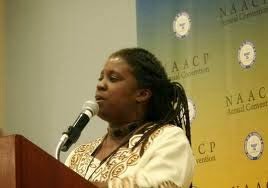
by jboullion | Dec 30, 2014 | Uncategorized
Speech to integrate Clean Energy & Civil Rights
Oftentimes in life, unforeseen things come up that require changes, and that has happened for one of our Summit keynote speakers. Jigar Shah sends his regrets but he is no longer able to attend the Summit to deliver the closing keynote address.
We have used this opportunity to bring a new voice on clean energy to our Summit audience, that of the NAACP. Director of Environmental & Climate Justice, Jacqui Patterson, will explain what “Just Energy” means to the NAACP and why they are supportive of renewable energy, and distributed energy, to achieve those goals.
Below is our press release, sent out today, explaining more about her upcoming talk! We welcome Jacqui to Wisconsin and look forward to continuing to build the renewable energy movement in Wisconsin with her leadership.
For Immediate Release
December 30, 2014
More Information, Please Contact:
Tyler Huebner
608-255-4044 ext 1
tyler.huebner@renewwisconsin.org
 |
| Jacqueline Patterson, NAACP |
RENEW Wisconsin is pleased to announce that Jacqueline
(“Jacqui”) Patterson, Director for the NAACP Environmental and Climate Justice
Program, will be the closing keynote speaker for its fourth annual Renewable
Energy Policy Summit in January. The
event, titled “Unlocking the Clean Energy Transition,” will take place
Friday, January 9th, 2015 at UW-Madison’s Union South.
The lead author of NAACP’s 2014 report titled “Just Energy
Policies: Reducing Pollution and Creating Jobs,” Patterson will make a powerful
case for a clean energy transition that will lead Wisconsin to a healthier and
more affordable future. Her vision embraces clean energy not only as a pathway
to reduced pollution but also as a driver for creating and distributing new
jobs and business opportunities throughout the state.
The Just Energies report assesses states on five different
criteria: Renewable Portfolio Standards,
Energy Efficiency Resource Standards, Net Metering Standards, Local Hire
Provisions, and Minority Business Enterprise Provisions. The report also examines the potential for
each state to become a leader in clean energy.
Ms. Patterson will take the place of clean energy visionary
Jigar Shah, who had to cancel due to unforeseen circumstances.
For more information on the 2015 Renewable Energy Summit
agenda, speakers, and registration, please visit
www.renewwisconsin.org/2015_Summit/.
-END-
RENEW
Wisconsin leads and accelerates the transformation to Wisconsin’s renewable
energy future through advocacy, education, and collaboration. More information
on RENEW’s web site at www.renewwisconsin.org.









